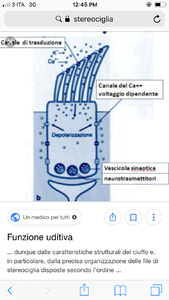- Oct 4, 2017
- 201
- Tinnitus Since
- 2000
- Cause of Tinnitus
- Stress, hearing loss, sinus infections, ... ?
Hello fellas, I'm spying here for a while and I finally made an account today.
I've got one question about Frequency Therapeutics : let's assuming their drugs work pretty well. If I have bad hearing loss above 15 000 Hz and severe to profound hearing loss above 16 000 Hz to 20 000 Hz can this treatment have effect on this range of frequencies (15 000Hz - 20 000 Hz) ?
Hearing loss above 15 000 Hz is pretty normal if you're above 30 years old .... I wish I still could hear above 10 000 Hz, I have 50% loss above 6-8Khz, I'm a musician too but stopped playing in bands now because of this. That said, besides the T the high frequency loss doesn't really bother me, tinnitus does, even if since a few days I have the impression things are better again, not sure if it's the sleep or supplements I'm taking that are starting to work.

 Member
Member
